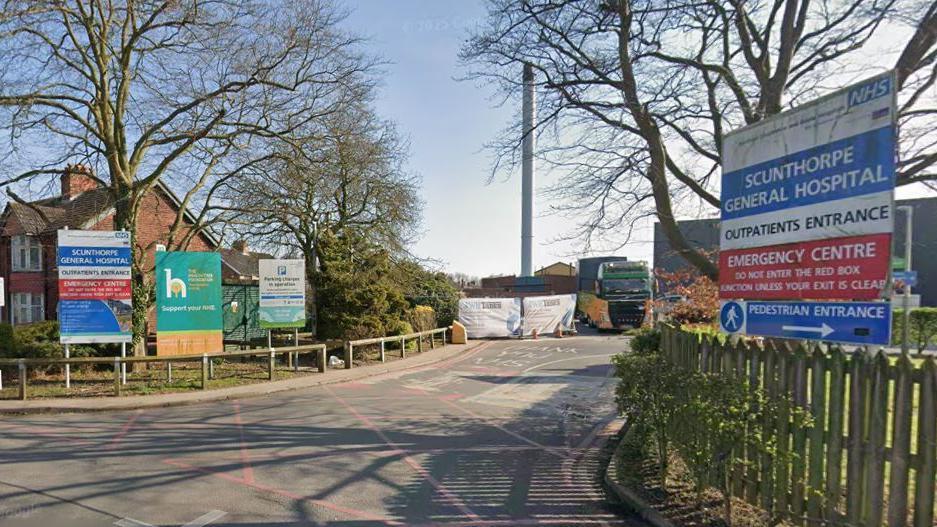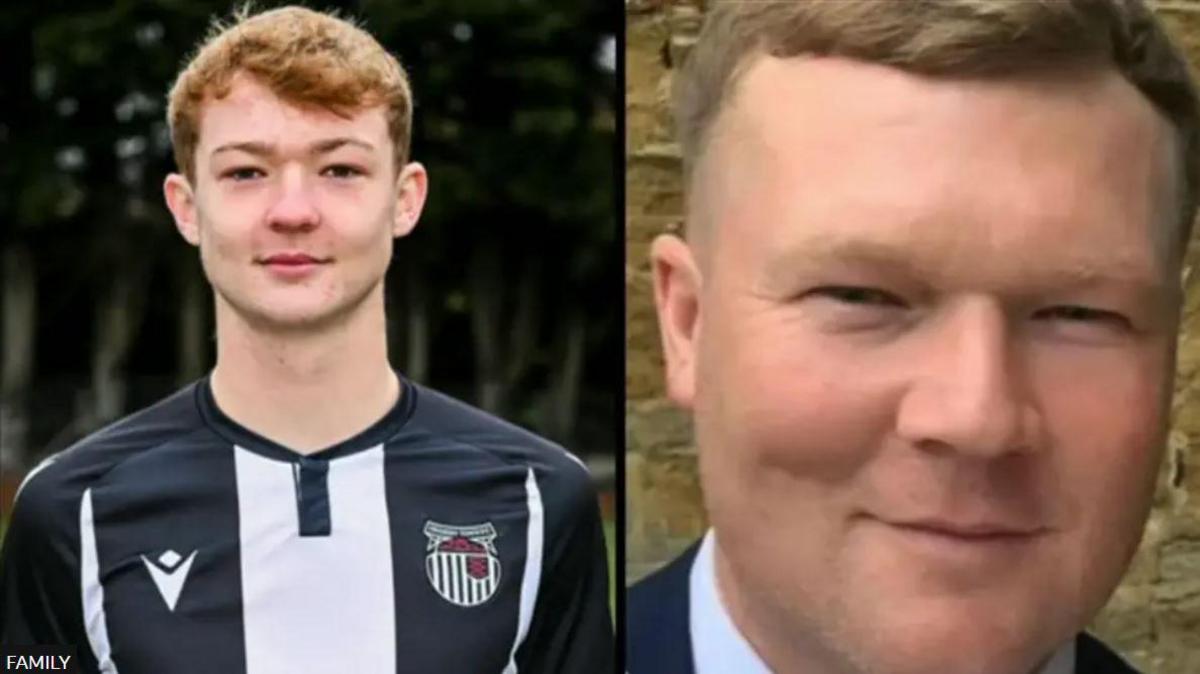Woman died after power cut during heart surgery

Jean Dye was undergoing heart surgery when a power cut happened, an inquest heard
- Published
A patient died following a "sudden failure of electrical power" during heart surgery, a coroner's report has stated.
Jean Dye, 77, was undergoing a procedure at Scunthorpe General Hospital on 7 September to treat cardiac disease when the outage, which lasted 10 minutes, happened.
An inquest into her death found it was likely she would have survived but for the loss of power.
Greater Lincolnshire senior coroner Paul Smith sent a Prevention of Future Deaths (POFD) report to NHS England, which the BBC has approached for comment.
Ms Dye died as a result of an "iatrogenic dissection" [a tear that occurs during a medical procedure] involving an artery, the coroner said.
The loss of power happened when medical staff were about to deploy cardiac stents, with a "limited opportunity to provide the necessary remedial treatment", the inquest found.
The Emergency Power Off (EPO) circuit was then activated, which overrode the back up electrical supply and staff had to wait for an engineer to reset the circuit before gaining power back.
Power was regained after 10 minutes when the stenting procedure was then complete but Mrs Dye failed to recover and was confirmed dead.
No clear cause for the loss of power was identified, the inquest found.
'Critical factor'
In his report, Mr Smith said: "Had staff been aware of the exact cause of the loss of power on this occasion and had they had the opportunity to reset the circuit without the need to await the arrival of an engineer, who in turn had to attend a separate plant room, the downtime would likely have been significantly reduced."
The coroner noted that "the delay whilst power was restored was a critical factor in this death".
The report has been sent to NHS England "inviting a review" into the guidance in relation to operating Emergency Power Off (EPO) circuit controls. Mr Smith also asked if there was a need for any consequential training.
He said he had "received evidence of a small number of accidental activations of EPO circuits nationally over a 12-month period".
"It is plainly something which can, and does, occur," Mr Smith added.
He gave NHS England until 28 August to respond to the report with a "timetable for action".
Listen to highlights from Lincolnshire on BBC Sounds, watch the latest episode of Look North or tell us about a story you think we should be covering here, external.
Download the BBC News app from the App Store, external for iPhone and iPad or Google Play, external for Android devices
Related topics
- Published14 July

- Published18 July
